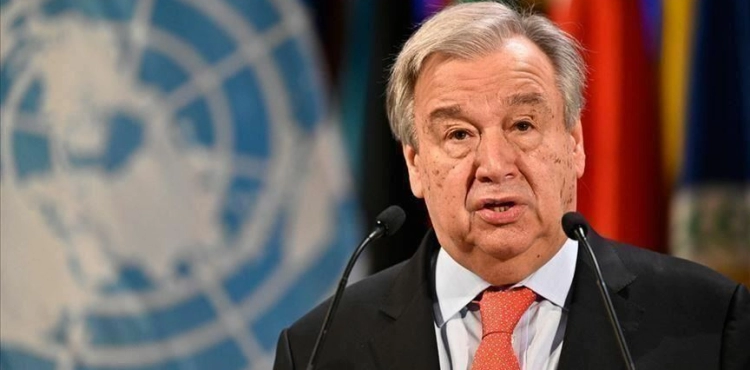The Secretary-General of the United Nations warned Tuesday of the risk of mass displacement due to rising ocean levels due to global warming, calling for "bridging the gaps" in international law, especially with regard to refugees.
"The risk is acute for the approximately 900 million people living in low-lying coastal areas - one in ten people on Earth," Antonio Guterres told the Security Council.
"Communities living in low-lying regions and entire countries could disappear forever," he added.
"We will witness mass migration of entire populations, in an unprecedented way," he added.
And while some small island nations inhabited by a small number of people are at risk of disappearing entirely, the impact of rising sea levels and ocean expansion caused by melting ice due to warming is spreading even wider.
Guterres stressed that "whatever the scenario is, countries like Bangladesh, China, India and the Netherlands are all in danger."
"Large cities on all continents will suffer severe impacts, such as Cairo, Lagos, Maputo, Bangkok, Dhaka, Jakarta, Bombay, Shanghai, Copenhagen, London, Los Angeles, New York, Buenos Aires and Santiago," he said.
UN climate experts report that sea levels rose by 15 to 25 centimeters between 1900 and 2018, and are expected to rise by another 43 centimeters by 2100 if global warming is 2 degrees Celsius compared to the pre-industrial era and 84 centimeters if temperatures rise. In the world 3 or 4 degrees Celsius.
The rise in water levels, in addition to the inundation of certain areas, is accompanied by a significant increase in storms and waves that inundate lands. The water and land are polluted with salt, which makes areas uninhabitable even before the water floods them.
The UN Secretary-General called for "filling the gaps in existing legal frameworks" at the global level.
He stressed that "this must include the right of refugees," as well as providing solutions for the future of countries that will lose their lands completely.
He also considered that the Security Council has a "fundamental role to play" in "confronting the devastating security challenges posed by the rising water level," which constitutes a contentious issue within the Council.
And Russia had used its veto power in 2021 against a decision establishing a link between climate warming and security in the world, a decision supported by the majority of Council members.
Guterres: Rising sea levels threaten mass exodus












